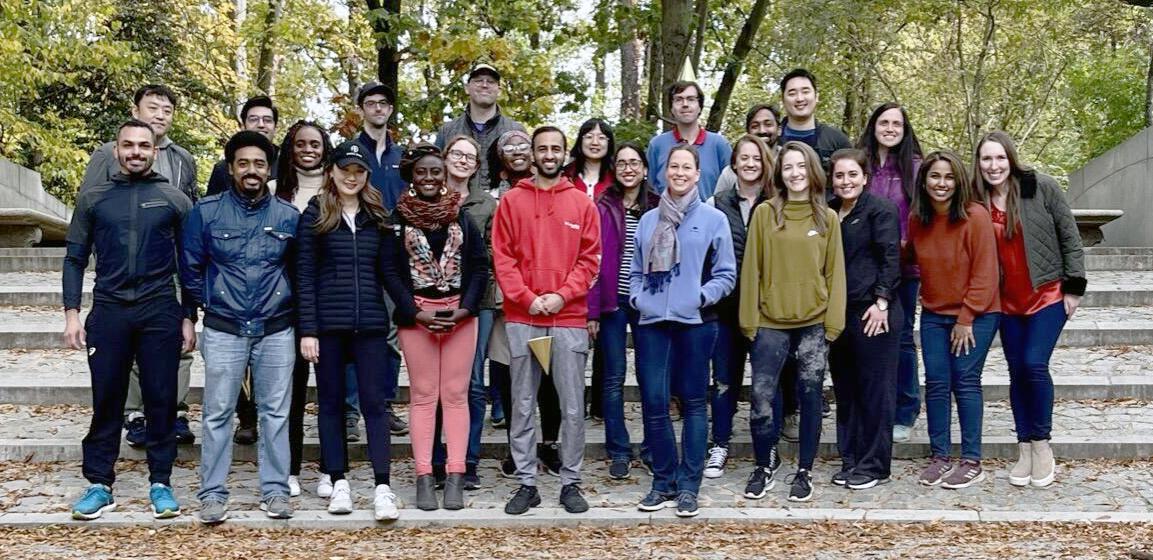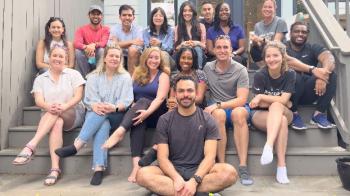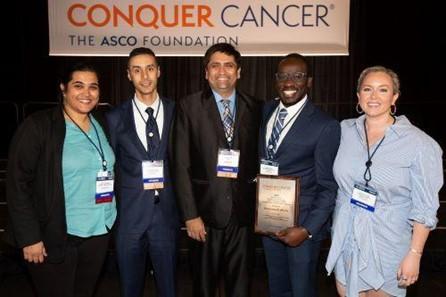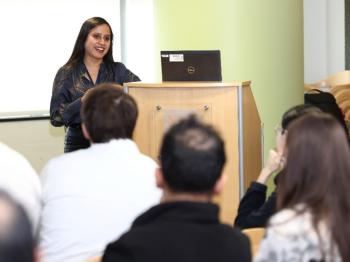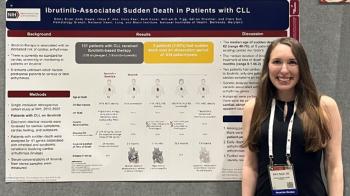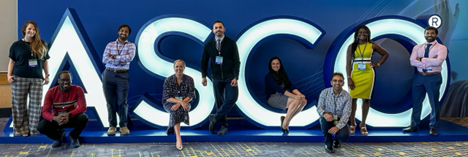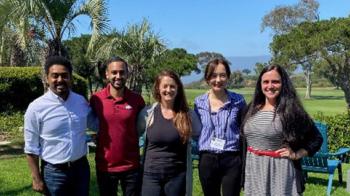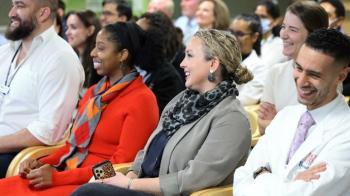The experience of training as a hematology oncology fellow at the National Institutes of Health is like no other. On our secure, leafy, and pedestrian friendly campus in Bethesda, Md., fellows work alongside leading hematology and oncology experts, interfacing with them in the clinic, on the wards, and in the research setting. Trainees have myriad opportunities to become expert clinicians, become independent researchers, and foster their leadership skills. We encourage and mentor fellows through the process of applying to attend workshops and to present their work to the scientific community, allowing many opportunities to connect with outside experts in their areas of interest.
Equally important, our fellowship builds a strong sense of community through both formal and informal gatherings and events on and off campus. These include annual Field Day, Doctors’ Day, research retreat, and graduation ceremonies, as well as awards to honor achievements by our fellows. Our fellows enjoy our proximity to Washington, DC and northern Virginia and all the metropolitan area has to offer.
Fellows here are mentored by world-renowned experts in the fields of hematology and oncology. From day one of fellowship, they are paired with a faculty member to provide a listening ear and advice on all aspects of fellowship and career development, aiding in the process of research mentor selection. Once fellows enter the protected research portion of their fellowships, they regularly meet with our Professional Development Committee. These meetings ensure fellows have a well-rounded, well-mentored, feasible, and clear approach to meeting all their clinical, academic, research, leadership, and career development goals by the end of their training. To supplement the direct involvement in research, there are opportunities to expand skills and expertise through coursework through the Foundation for Advanced Education in the Sciences (FAES), as well as grant-writing workshops for fellows through the NIH GME office and innumerable seminars, conferences, and workshops on campus.
Because the Hematology Oncology Fellowship is part of the NIH’s intramural research program, fellows can participate in many of the more than 350 clinical trials in oncology and hematology. Fellows can and do serve as trial investigators during the research portions of their fellowships.
Fellows learn to lead clinical trials and become part of multidisciplinary research teams during their time as fellows. They learn to work with regulatory officials, protocol support staff, biostatisticians, drug companies, patient advocates, IRBs, and the FDA. Fellows who chose to pursue clinical research have the opportunity to help design, write, and run clinical trials and then analyze and publish their findings. Those who choose to pursue laboratory-based research projects ave made groundbreaking discoveries leading to the development of new cancer therapies. Our fellows present and publish their research findings and clinical trial outcomes at international meetings and in high-impact scientific journals.
Beyond research leadership training, fellows are able to grow as leaders through other graduate medical education and patient safety/quality improvement opportunities. They can serve on committees such as the Clinical Fellows Committee and Pharmacy and Therapeutics Committee, or as a leader of QI projects. There is also opportunity to serve as a chief fellow and receive further leadership experience.
In their senior years, fellows take a leading role in teaching during didactics to build their skills as educators and comfort in public speaking.
Fellows gain skills in the oral and written presentation of their research, presenting at didactics, job talks, and branch seminars, as well as at national and international meetings. As they receive feedback along the way, our fellows build their ability to share the findings and significance of their research with the greater scientific community. In addition to presenting their research at national meetings and publishing in high-impact journals, fellows are also expected to pursue grants. They are heavily mentored throughout the grant-writing process, both by their research mentors and the fellowship leadership. The Professional Development Committee serves as a comprehensive, longitudinal, serial review of each fellow’s career plans and path towards those plans during fellowship.
Our fellows regularly apply for and compete successfully for awards, grants, and workshops from major national societies, including the American Society of Hematology (ASH), the American Society of Clinical Oncology (ASCO), the American Association for Cancer Research (AACR), and the Society for Immunotherapy of Cancer (SITC). The ASCO awards our fellows have earned in recent years include the Young Investigator Award, Conquer Cancer, and GU ASCO Merit Awards. Our fellows are regularly selected to participate in the week-long Methods in Clinical Cancer Research Workshop co-sponsored by ASCO and AACR.
ASH awards earned by our fellows include the ASH Honors Award and participation in the Clinical Research Training Institute. Fellows have also been selected for participation in the SITC Clinical Immuno-Oncology Network workshop and the SITC Women in Cancer Immunotherapy Network.
Current and recent NIH hematology oncology fellows have been presented with FDA-AACR Educational Fellowships and been selected to participate in FDA-ASCO Hematology and Oncology Fellows Day workshops. Other recent awards include the Society of Hematologic Oncology’s Young Investigator Award and scholarship, the Prostate Cancer Foundation Young Investigator Award, the Bladder Cancer Advocacy Network Young Investigator Award, and AACR health disparities travel awards.
Within the fellowship, we strive to foster an environment where all of our fellows, with their diverse backgrounds, experiences, interests, and abilities, can thrive. We put wellness at the forefront of our training model and work to build a strong, supportive community of fellows and faculty. We have team-building field day events woven into didactics, celebrate important events in our lives together, keep an active offering of social events, and participate in campus events like Take Your Child to Work Day; Minority Health Walk; Take a Hike Day; Safety, Health, and Wellness Day; and other NIH-wide events. Fellows are encouraged to build work-life balance with help from NIH and community resources.
A fellow’s need for extended sick leave, parental leave, or other time away from training does not affect the training schedule or service demands of their co-fellows.
